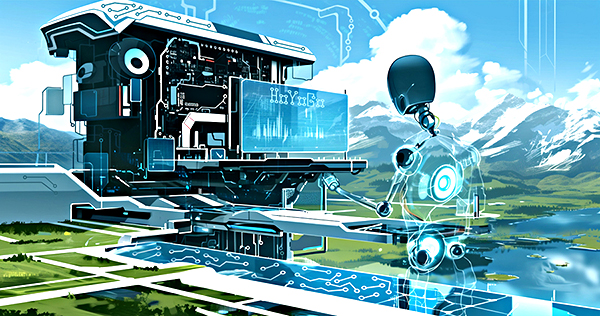Application of Artificial Intelligence PCB in AI Go Competitions
The application of artificial intelligence PCBs in AI Go competitions exemplifies the deep integration of AI technology and high-performance hardware. AI Go systems require powerful computational power and stable hardware support, with artificial intelligence PCBs serving as core components to ensure efficient operation and stable performance of AI models during competitions.

Hardware Requirements in AI Go Competitions
1. High-Performance Computing Power
AI Go programs demand significant real-time computational capabilities, such as deep learning inference and Monte Carlo Tree Search. This requires PCBs with efficient data processing performance and high-speed communication support to meet the stringent demands of AI algorithms on hardware.
2. Low Latency and High Stability
In AI Go competitions, models need to complete complex decisions within milliseconds, which places strict demands on PCBs for low-latency data transmission and highly stable operation to ensure that critical computational processes remain uninterrupted.
3. Thermal and Energy Efficiency Management
Continuous high-load operation of AI Go systems generates substantial heat. Artificial intelligence PCBs need optimized thermal management (e.g., heavy copper PCBs or IMS PCB) and energy efficiency management (e.g., integrated power management modules) to maintain stable long-term operation.
Applications of Artificial Intelligence PCB in AI Go Competitions
1. Dedicated PCBs Supporting High-Performance Computing
1) Multilayer HDI PCB
High-Density Interconnect (HDI) PCBs are commonly used in AI Go hardware. This type of PCB structure minimizes size, improves signal transmission speed, and supports higher integration levels, making it an ideal choice for running complex AI algorithms.
2) GPU/ASIC-Specific PCBs
AI Go programs rely on high-performance computing devices such as GPUs or dedicated ASIC chips (e.g., TPUs). Artificial intelligence PCBs must optimize power delivery and signal integrity to ensure these computing modules operate stably under high loads.
2. High-Speed Communication Support
Artificial intelligence PCBs leverage low-loss, high-speed materials and precise trace design to enhance data transmission rate and stability between modules, ensuring real-time responsiveness during competitions.
3. Thermal and Power Management
1) Embedded Thermal Design
Technologies such as heavy copper PCBs and IMS PCB improve thermal conductivity, effectively preventing heat buildup and enabling high-load operation of hardware.
2) Power Management Circuit Integration
The advanced power management modules (PMICs) integrated into artificial intelligence PCBs ensure balanced power consumption and stable power supply when the AI model is running.
4. High-Reliability Design
1) Anti-electromagnetic Interference (EMI)
Shielding layers and specialized materials are employed to reduce signal interference, ensuring accurate data transmission.
2) Redundant Design
Adding redundant design to key signal paths ensures stability under high-intensity operation.
Practical Application Scenarios
1. AI Servers and Inference Devices
AI Go systems are often deployed on high-performance servers. Optimized artificial intelligence PCBs can significantly improve the speed and accuracy of deep learning inference.
2. Edge Computing Devices
Compact PCBs in small-scale AI Go devices or embedded systems achieve a balance of computational power and energy efficiency, making them suitable for on-site demonstrations or portable gameplay devices.
3. Data Center Support
Large-scale competitions require high-performance data center support. The artificial intelligence PCBs optimized for data centers enhance multi-node communication and collaborative computing.
Through advancements in thermal design, high-speed communication, and reliable structures, artificial intelligence PCBs enable AI Go systems to achieve faster decision-making, higher accuracy, and greater stability in competitions. This synergy between hardware and algorithms not only drives technological progress in AI Go competitions but also serves as a valuable reference for other AI application scenarios.
HoYoGo is a professional artificial intelligence PCB supplier with rich AI PCB production experience and professional technology, providing professional PCB services to more than 500 customers worldwide. Since 2022, we started to provide professional AI PCB products to the AI industry, and in 2024, the number of customers purchasing AI PCBs from us continued to grow. If you have any related needs, please contact us!
评论
发表评论